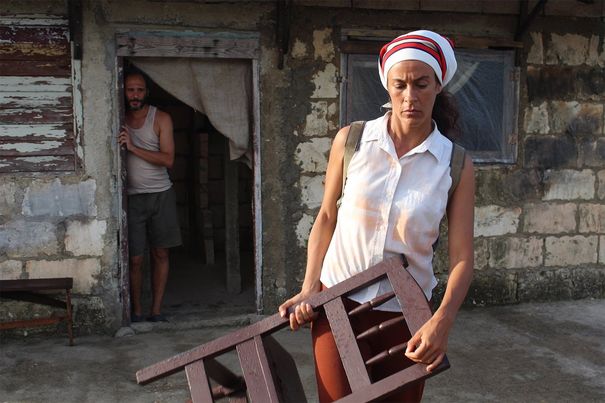A Simple Encounter: SANTA AND ANDRÉS
By Carlos Armenta

Film still from SANTA AND ANDRÉS
The new feature film by Cuban director Carlos Lechuga, SANTA AND ANDRÉS, is a critical commentary on totalitarian Cuba after the revolution. However, the treatment of characters and the story allow the film to not stagnate as a simple pamphlet. Santa is a woman who works on a farm and is sent to watch Andrés for three consecutive days due to a political event on the island, an action necessary to prevent acts of opposition. Andrés is a homosexual writer and, according to the government, a dangerous man. This is a subtle nod to Reinaldo Arenas, René Ariza, Guillermo Rosales and an entire generation of dissident writers. It also echoes and strongly resonates with the Cuban film FRESA Y CHOCOLATE.
We are faced with two apparently opposite and irreconcilable characters; the only meeting point is solitude. Nevertheless, the film’s story closes their gap without falling into clichés and easy solutions. The way characters are transformed is narrated with much subtlety: the change in Santa’s style of dressing, as well as Andrés’ move from his home to the most populated part of the village to immerse himself in Santa’s world. The clash of universes between Santa and Andrés makes something happen spontaneously and allows for a temporary interruption to this totalitarian and atrocious world in which they are immersed.
When the encounter predictably must end, the film reaches its highest point in a sequence where the political situation once again puts each character in their place. The gap between Andrés and Santa reappears, but the spectator knows the characters have changed. Indeed, SANTA Y ANDRÉS is a film of political criticism, but it goes beyond that to tell us the story of a simple encounter.

